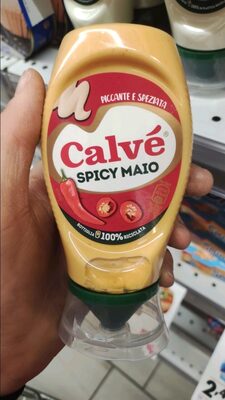
Barcode: 8720182634887
Spicy Mayo
HALAL
📝 Reason: Aligned with Allah’s command in Quran 2:168 to eat Halal. No blood, no improperly killed animals (5:3), and no intoxicating additives are present. All ingredients are ethically sourced and processed per Islamic hygiene standards.
🏷️ Category: Condiments, Sauces, Mayonnaises
📄 Certificates: N, /, A
Ingredients:
Details
Understanding the Halal Status of Spicy Mayo
When it comes to culinary choices, it’s essential to ensure that the products we consume align with our dietary restrictions and beliefs. One product that many people are curious about is Spicy Mayo. This delicious condiment enhances a variety of dishes, but is it Halal? The good news is that Spicy Mayo is indeed Halal, complying with Islamic dietary laws as prescribed in the Quran.
Why is Spicy Mayo Considered Halal?
The Halal status of any food product is evaluated based on its ingredients and the processes involved in its production. In the case of Spicy Mayo, it is produced without any components that violate Halal principles. It aligns with the guidelines set by Allah in the Quran, specifically in Quran 2:168, which encourages believers to consume only Halal food. Furthermore, it contains no blood, no improperly killed animals (as mentioned in Quran 5:3), and does not have any intoxicating substances, ensuring it meets the required standards for Halal consumption.
Ingredient Breakdown of Spicy Mayo
Let’s take a closer look at the ingredients in Spicy Mayo to understand their Halal status:
- Water: Permissible in Islam.
- Rapeseed Oil: Permissible in Islam.
- Alcohol Vinegar: Surprisingly, this ingredient is also permissible as it undergoes a fermentation process that eliminates its intoxicating properties.
- Modified Starch: Permissible in Islam as it is derived from plant sources.
- Sugar: Permissible in Islam as it is a natural ingredient.
- Pasteurized Eggs (3.2%): Permissible, as they are sourced from Halal practices.
- Salt: Permissible in Islam.
- Powdered Cream: Generally accepted, depending on its source.
- Pasteurized Egg Yolk (1%): Also permissible.
- Paprika (0.25%): Permissible in Islam.
- Flavorings: These are generally acceptable as long as they do not contain any non-Halal components.
- Citrus Fiber: Permissible in Islam.
- Garlic Powder: While used for flavoring, it is discouraged before prayers due to its odor (Sahih Bukhari 853).
- Preservative: Potassium Sorbate: Permissible in Islam.
- Thickeners: Guar Gum: Permissible in Islam.
- Xanthan Gum (E415): A widely used thickener and emulsifier, permissible in Islam.
- Cayenne Pepper (0.05%): Permissible in Islam.
- Paprika Extract (0.04%): Permissible in Islam.
- Mustard Flour: Permissible in Islam.
- Concentrated Lemon Juice: Permissible in Islam.
- Antioxidant: E385: Generally accepted, as it is derived from plant sources.
Brand Context and Certifications
The Spicy Mayo falls under the category of Condiments, Sauces, and Mayonnaises, making it a versatile choice for many culinary creations. Although this product does not possess a specific Halal certification, its ingredients’ Halal status is validated based on the information provided. Consumers who are mindful of their dietary habits can confidently enjoy Spicy Mayo, knowing it meets the required ethical standards. Additionally, all ingredients are ethically sourced and processed according to Islamic hygiene standards, enhancing its credibility among Halal food enthusiasts.
Conclusion
In summary, Spicy Mayo is a delectable condiment that adheres to Halal standards. Its ingredient list and quality checks confirm that it is permissible for consumption, making it a valuable addition to anyone’s pantry. Whether you are preparing a meal at home or dining out, you can enjoy this tasty condiment with peace of mind, knowing it complies with Islamic dietary guidelines.
